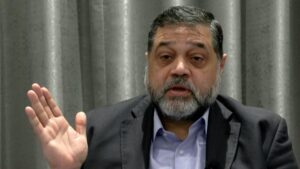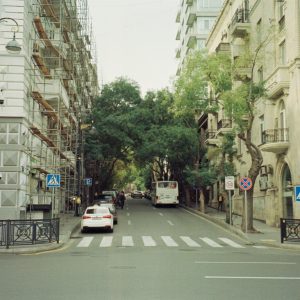Syria’s Assad to emerge from the cold at Arab League summit
Riyadh, Saudi Arabia (AFP):
Syrian President Bashar al-Assad is expected to end his 12-year exile from the Arab League over the country’s brutal, long-drawn civil war this week. He is expected to attend a summit in Saudi Arabia, which championed his return.
Assad’s invitation to Friday’s summit in Jeddah signals his return to the fold after more than a decade of isolation since his government’s brutal crackdown on pro-democracy protests in 2011 triggered a war that has killed more than 500,000 people.
Analysts say it also shows the clout of Saudi Arabia, which is casting itself as a peacemaker and asserting itself in multiple crises across the Middle East.
Beyond rekindling ties with the Assad government, the summit is expected to devote energy to two conflicts: the month-old showdown between two generals in Sudan and the eight-year-old civil war in Yemen.
It is taking place in the same city where representatives of the two Sudanese camps have been locked in negotiations for a week and a half brokered by Saudi and US officials.
In Yemen, meanwhile, Saudi Arabia is pushing for a peace deal with Iran-backed Houthi rebels after eight years at the helm of a military coalition that failed to defeat them on the battlefield.
Neither initiative has yielded a major breakthrough so far, but Saudi op-ed writers and analysts are bullish.
“The Jeddah summit is one of the most important summits for a long time because it will rebuild the Arab region in a way that relies on shared interests and turns challenges into opportunities,” said Saudi political commentator Suleiman al-Aqili.
“If the summit is able to reintegrate Syria into the Arab system and take a strong position on the conflict in Sudan and Yemen, it will be successful.”
Wave of reconciliation
Recent diplomatic shifts were accelerated by a surprise Chinese-brokered normalisation deal with Iran announced on March 10.
Less than two weeks later, Saudi Arabia announced it had begun talks on resuming consular services with Iran ally Syria, the first public step in a rapprochement that has since seen the countries’ foreign ministers exchange visits.
Yet Assad’s presence in Jeddah on Friday does not guarantee progress on resolving Syria’s brutal war.
In areas of northwestern Syria that remain under rebel control, there have been repeated mass protests against Assad’s return to the Arab fold.
Nor is it clear that the pan-Arab body can extract concessions on issues like the fate of Syrian refugees or the surging captagon trade.
“It’s important to remember that Assad’s return to the Arab League is a symbolic measure to begin the process of ending his regional isolation,” said Anna Jacobs, senior Gulf analyst with the International Crisis Group.
“In many ways it is the start of political normalization, but it will be even more important to watch if economic normalization comes with it, especially from Gulf Arab states.”
Assad’s stay in Jeddah will be followed across the region, perhaps nowhere more closely than in Damascus.
‘Jury still out’
Last week in Jeddah, Sudan’s warring parties agreed to respect humanitarian principles, but they have made no breakthrough on a truce in talks that one US official called “very tough”.
Separately, the Saudi ambassador to Yemen said in an interview that next steps towards a peace deal with the Houthis were unclear, though he said he believed all sides were serious about ending the war.
Regardless of what happens, there is little doubt about Saudi Arabia’s approach, both for the summit and beyond, said Torbjorn Soltvedt of the risk intelligence firm Verisk Maplecroft.
“There are clear signs that Saudi Arabia is shifting away from its previously adventurist foreign policy and seeking to reinvent itself as the region’s main diplomatic broker,” Soltvedt said.
He added, though, that “the jury is still very much out” on whether this mission will succeed.










